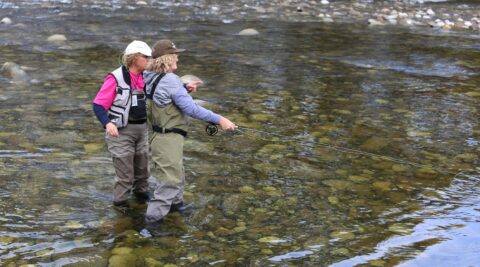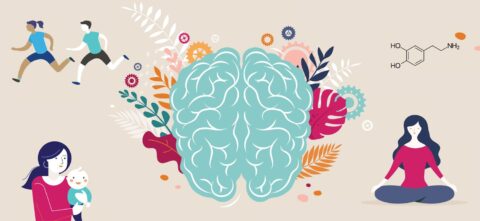Studies have found women are more likely than men to develop Alzheimer’s disease. These small changes could help protect your brain.
If you’re a woman in midlife, there’s a good chance you’ll have school- aged kids at home. It’s also possible you might be getting to the stage where your parents are starting to face health challenges and need a bit of extra support. It’s the classic “sandwich generation” situation.
One of those parental challenges might be Alzheimer’s disease, the most common form of dementia. Caring for someone with Alzheimer’s is no joke. It is, as Alzheimer’s NZ CEO Catherine Hall noted to me, “a tough journey”. And the burden often falls on women.
But I wonder, have you ever stopped to think about your own risk of developing this increasingly common disease?
This is something women should be thinking about. That’s because we’re far more likely than men to develop Alzheimer’s – our risk is anywhere between 30-50% higher, in fact. A 60- year-old woman is twice as likely to develop Alzheimer’s as she is to develop breast cancer. Two-thirds of Alzheimer’s patients in the USA are women. I find that seriously shocking, not least because I had no idea about this until recently.
Also, the changes in the brain that are the precursors to Alzheimer’s can start to happen decades before any symptoms show up. So it’s in our interests to see what we can do about this before we hit old age.
How big is the Alzheimer’s problem?
Alzheimer’s NZ says we don’t have any data on the actual prevalence of dementia and Alzheimer’s in our country – the research, sadly, has never been done. But the organisation estimates around 70,000 people in Aotearoa have dementia now, and that number is set to triple by 2050, when my own generation hits old age. It’s a potentially big problem heading our way and it affects almost all of us. Alzheimer’s NZ says right now 4 out of 5 Kiwis knows, or has known, someone with dementia.
Can we prevent Alzheimer’s?
The good news is, Alzheimer’s is not inevitable. While there are some risk factors we can’t do anything about – age, for example – there are others we can change to potentially lower our risk of Alzheimer’s in quite meaningful ways.
“Evidence now suggests that there are 12 modifiable risk factors – those are risk factors
that it is possible to do something about. And they account for about 40% of the risk,” says Catherine.
In further good news, the things we can do for the health of our brains are also good for other things, too, like heart health, fitness and weight. That includes the basics like not smoking, limiting alcohol (yes, even though you’ve heard red wine is good for you) and keeping on top of blood pressure and cholesterol levels. Basically, what’s good for the heart is good for the brain.
Exercise is a powerful protective, too. A recent Australian study found that regular exercise can improve brain function and may protect against dementia in middle-aged and older adults, with women benefitting almost twice as much as men.
There are some other interesting things that can lower our risk, too. One relates to hearing. “The most recent evidence suggests that if you have hearing loss, then a hearing aid could well be protective against Alzheimer’s,” says Catherine. She notes that this is considered “breaking news” in the world of science, and how hearing affects Alzheimer’s risk is not fully understood yet. But it might be something to do with another factor: social connection.
“One of the things that’s protective is social engagement and keeping our brains active,” she says. “If you’ve got hearing loss, it’s much, much harder to do those kinds of social things.”
Another popular theory is that sound and hearing are really important aspects of how
our brains work and how we lay down memories. So if you have any concerns about your hearing, get them checked out, quick smart.
In terms of food, it’s known that an anti- inflammatory, Mediterranean-style diet is protective for the brain – and we know it’s good for almost everything else, too. That means eating more plants – vegetables, fruit, whole grains, legumes, nuts, seeds and olive oil – and eating less processed food, less sugar and probably less meat. Though you don’t have to give this up completely, as red meat in particular is important for maintaining women’s iron levels.
“If we did those things,” advises Catherine, “it would be good for all sorts of reasons, not just for dementia.”
What’s really promising about the research into dementia, she says, is that it suggests it’s never too late for us to start doing things to protect our brains.
“We can benefit from starting to get more exercise, eating better or having more social engagement, even when we’re in late middle-age or older. So it’s worth doing, whatever age we are.
“I find it very encouraging to know that those are things within our grasp and that we can all do.”
While there are no guarantees and even people with the best lifestyle can still develop dementia, it seems pretty obvious that looking after our brain health is – yes, I’m going to go there – a no-brainer.








